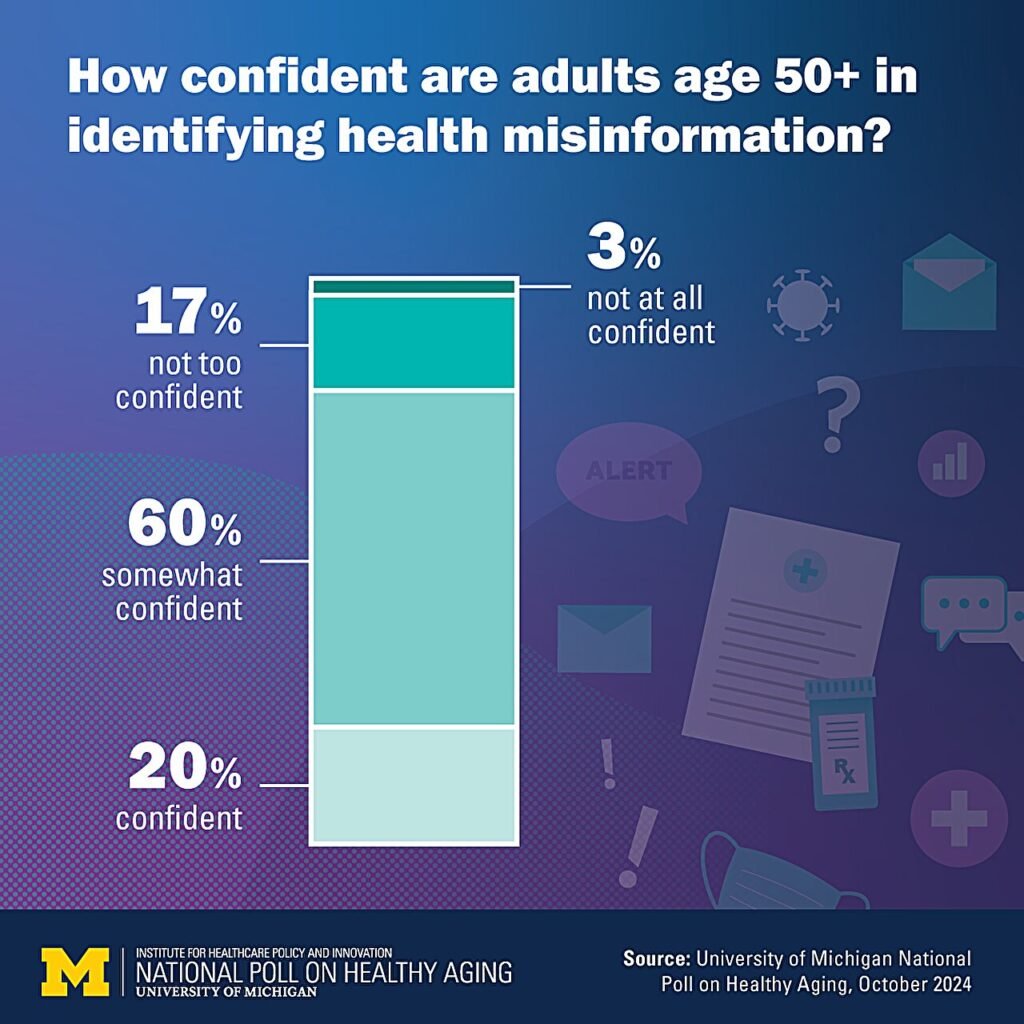As technology continues to advance, older adults are increasingly turning to the internet for health information. However, a recent poll conducted by the University of Michigan and AARP has revealed that 74% of people over 50 would have very little or no trust in health information generated by artificial intelligence (AI). This lack of trust extends to AI-generated content, highlighting a significant trust gap in the digital health landscape.
The poll also found that 20% of older adults have little or no confidence in their ability to spot misinformation about health topics online. This percentage was even higher among those who rated their mental health, physical health, or memory as fair or poor, as well as those with disabilities that limit their activities. These findings suggest that those who may need accurate health information the most are the ones most likely to struggle with identifying false information.
Despite the prevalence of older adults searching for health information online, only 32% find it very easy to locate accurate information. This underscores the importance of producing and promoting trustworthy health information in various formats to better serve this demographic. Health systems, academic institutions, nonprofit organizations, and government agencies can use these findings to improve the accessibility and reliability of health information for older adults.
The poll also highlighted the role of health care providers, pharmacists, and friends or family members with medical backgrounds as trusted sources of health information for older adults. Websites run by health organizations were viewed as highly trustworthy by most users, indicating a need to encourage more people to utilize these resources for accurate health information.
In addition to the trust gap in AI-generated content, the poll asked older adults about their usage and trust in different types of online health information sites. While .com health information sites were the most commonly visited, health system websites were deemed the most trustworthy. Sites run by federal government agencies, nonprofit organizations, and universities also garnered trust from users, emphasizing the importance of credibility in online health information.
AARP offers valuable resources on the impact of AI on health and wellness, with free classes available through Senior Planet to educate older adults on the advancements and limitations of AI in everyday life. These resources aim to empower older adults to navigate the evolving digital health landscape with confidence and knowledge.
Overall, the poll shed light on the challenges older adults face in accessing and discerning trustworthy health information online. By addressing these trust gaps and providing reliable resources, organizations can better support the health literacy needs of older adults in an increasingly digital world.


